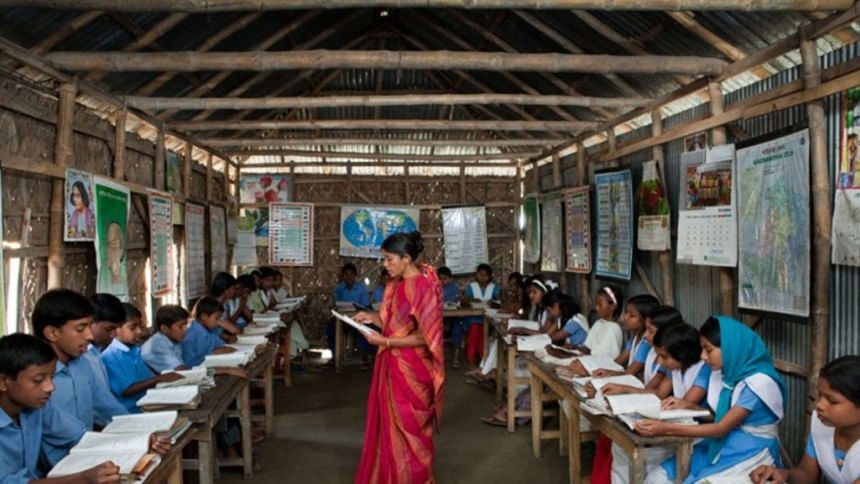A wake up call for rethinking learning assessment of students

Improving the learning outcomes of students has gained significant attention in the wake of the Covid-19 pandemic, as existing assessment methods were significantly hampered due to school closures. There are already many inherent challenges associated with the existing assessment procedures, which have been further exacerbated. As schools are gearing up to reopen in 2021, the whole education community must choose whether to get back to the traditional learning assessment, or pursue a new path.
#NextGenEdu, a global learning platform for partners to share proven and potential ideas, policy directives and strategies in education, arranged a virtual seminar on December 19, 2020 to explore this topic: How can we assess our learners during and beyond the pandemic? In this webinar, a diverse panel of speakers from different industries—be it non-profit leaders, educators, social entrepreneurs—shared key perspectives on this broader learning assessment topic. Here's what we have learned from seasoned professionals from all across the global education sector on how to rethink the learning assessment of students.
Learning assessment processes must involve parents
During the onslaught of Covid-19, many organisations have had to completely shift their traditional delivery of education by experimenting with different blended learning initiatives—be it via mobile, radio, TV, etc. One welcoming trend that emerged from such experiments was increased ownership of parents in facilitating the education of their children. Traditional assessment processes heavily rely upon teachers and curriculum, but during the pandemic, parents played a pivotal role in lending their devices and also assisting children with their assignments. Such active involvement of parents in the assessment process should be explored further.
Learning assessment must not decouple academic deficiency and well-being
Assessment provides you with a snapshot of how well someone has learned. To address the deficits in learning, educators are planning to stretch the curriculum, but prior to that, it is essential to figure out whether students are in a stable state to absorb the material and apply it later. Therefore, it is critically important in the first place to develop the capacity of learners to adopt this learning, and later double down on fixing the assessment criteria. It is easier to develop an intense academic curriculum, but we need to have strategies to ensure that students are able to grasp what they are being taught—that they can handle the psychological, physical and mental pressures.
Learning assessment should be experiential
We need to come out of the traditional factual reports of learning assessment. For example, if a football team competes in a match and draws a match 2-2. And again, after 6 months, the team gets a similar result. Factual report shows that there has been no improvement in the performance of the team. However, the team might have performed better than the previous match in many aspects, which is not reflected in the match result. Ultimately, a learning assessment should be measured by how people perform an activity. What if we changed the extensive content of physics books and converted it into something that has 10-15 exciting hands-on experiments to see how the students performed those experiments? The core essence here is to design assessment strategies where learners can be more engaged in practical knowledge and receive proper feedback.
Learning assessment should revolve around strengthening future-oriented skill-sets
A person's cognitive skill lies at the heart of what is required in any 21st century workplace. Sound cognitive skill leads to generating good decision-making skill, which stays with a student in the long-term. Without pursuing the route of rote memorisation, if a student can learn memory tricks and techniques, and apply logic, it will help the student be more adaptive and learn futuristic skills efficiently. Therefore, it is high time to design learning assessments with an intentional bias towards improving futuristic skills.
Learning assessment can't ignore system assessment
One advice educators should always give students is to never stop questioning why. This pandemic has forced the whole education community to find alternative ways of service delivery. It is essential to identify the loopholes in the system of education delivery which perpetuates glaring inequalities in accessing quality education. We cannot just afford to return to pre-Covid settings, this is a golden opportunity to go back to the drawing board and identify the blockages in the system—be it superficial policy reforms, lack of innovation mindset among decision-makers, lack of autonomy in the school system—which are contributing to widening the gap of quality education. Therefore, it is critical to zoom out and understand the dynamics of learning assessment through the lens of system assessment.
Learning assessment must also be tied to teachers' capacity building and well-being
One of the core ingredients of designing a proper learning assessment is the capacity building of teachers—and also to address their mental well-being during this pandemic. It was refreshing to see how rapidly universities shifted their classes online thanks to the wider adoption of new technologies. In some cases, readiness of mindset also proved critical. Some organisations also developed master trainers who can accelerate the training process of teachers' training. Continual capacity building can generate this required mindset and is equally important to design well-being courses for educators, who also went through various difficulties and mental trauma due to the pandemic. Therefore, a key consideration needs to be focused on the capacity development of teachers and it needs to be synced with the way we design the learning assessment process.
Salman Sabbab is a Deputy Manager at Brac Social Innovation Lab and core team member at #NextGenEdu.

 For all latest news, follow The Daily Star's Google News channel.
For all latest news, follow The Daily Star's Google News channel. 



Comments